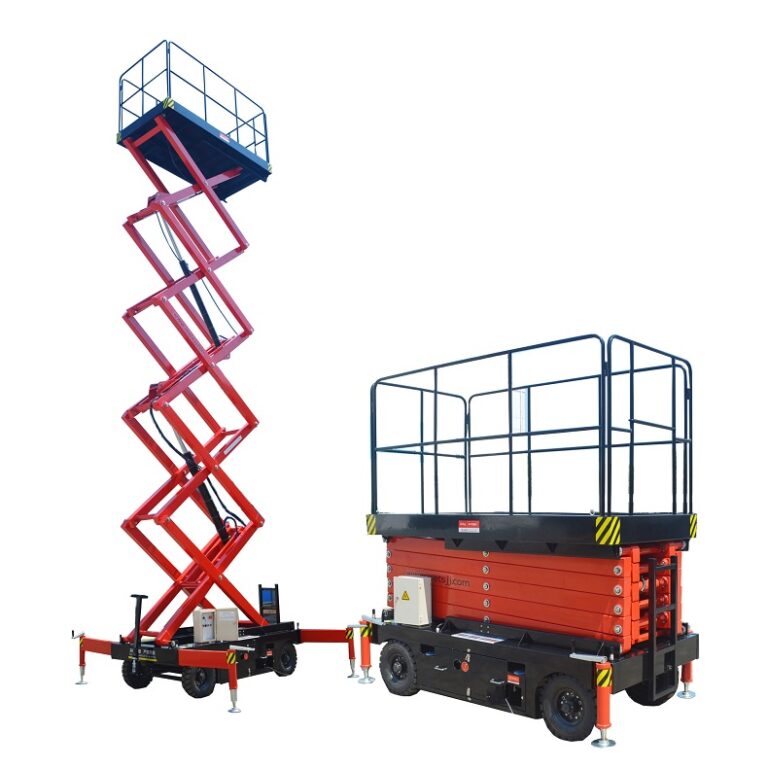Event Details
-
Prolonging the Life of Your Forklift Truck: Essential Maintenance Tips
Forklift trucks are vital assets in material handling operations, and ensuring their longevity is crucial for maintaining productivity and minimizing costs. Regular maintenance not only extends the life of your forklift but also enhances safety and efficiency. This article provides essential maintenance tips to keep your forklift truck in optimal condition.
Daily Inspections
Visual ChecksStart each day with a thorough visual inspection of the forklift. Look for any visible damage, leaks, or loose parts. Check the condition of the tires for wear and tear, and ensure that the forks are free of cracks or bends. Addressing minor issues early can prevent them from becoming major problems.
 China price Trader Manufacturer Wholesale scissor aerial platform Materials Handling Platforms sale Buy Online Industrial Equipment
China price Trader Manufacturer Wholesale scissor aerial platform Materials Handling Platforms sale Buy Online Industrial Equipment
Fluid LevelsRegularly check fluid levels, including engine oil, hydraulic fluid, and coolant. Low fluid levels can lead to overheating, poor performance, and potential damage to the forklift's components. Top up fluids as needed and ensure there are no leaks.
Scheduled Maintenance
Regular ServicingAdhere to the manufacturer’s recommended servicing schedule. Routine maintenance should include oil changes, filter replacements, and thorough inspections of the engine, transmission, and hydraulic systems. Scheduled servicing ensures that your forklift operates smoothly and efficiently.
Battery Care
For electric forklifts, proper battery maintenance is essential. Regularly inspect the battery for corrosion, ensure that it is fully charged, and check the water levels in lead-acid batteries. Clean the battery terminals and connections to prevent power loss and extend battery life.
Tire Maintenance
Proper InflationMaintain the correct tire pressure as specified by the manufacturer. Under-inflated or over-inflated tires can affect the stability and handling of the forklift, leading to increased wear and potential accidents. Regularly check and adjust tire pressure to ensure optimal performance.
Tire Condition
Inspect tires for signs of wear, damage, or uneven tread. Replace tires that are excessively worn or have visible damage such as cuts or punctures. Using tires in good condition improves traction, load handling, and overall safety.
Fork and Mast Maintenance
Fork InspectionsRegularly inspect the forks for cracks, bends, or any signs of wear. Pay close attention to the fork heels, as they are more prone to wear. Replace forks that show significant damage to prevent load instability and accidents.
Mast Lubrication
Keep the mast and chains well-lubricated to ensure smooth and efficient operation. Use the recommended lubricants and follow the manufacturer’s guidelines for lubrication intervals. Proper lubrication reduces friction and wear on moving parts.
Operator Training
Proper UsageEnsure that all forklift operators are properly trained and certified. Proper usage and handling of the forklift can significantly reduce wear and tear on the equipment. Encourage operators to follow best practices and avoid overloading, abrupt maneuvers, and rough terrain.
Reporting Issues
Encourage operators to report any issues or abnormalities immediately. Early detection and prompt action can prevent minor problems from escalating into major repairs. Create a culture of proactive maintenance and safety awareness among your workforce.
Conclusion
Extending the life of your forklift truck requires a combination of regular inspections, scheduled maintenance, and proper operator training. By following these essential maintenance tips, you can ensure that your forklift operates efficiently, safely, and reliably. Investing in regular maintenance not only prolongs the life of your equipment but also reduces downtime and maintenance costs, contributing to the overall success of your material handling operations. Prioritize forklift maintenance and keep your operations running smoothly. -
11/4/24 at 1:00 AM -
5/23/25 at 1:00 AM -
RSVPs
- 1 attending
- 0 maybe attending
- 0 not attending
- 0 awaiting reply